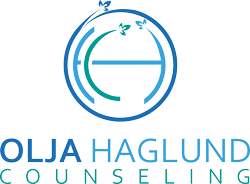People who are suffering from depression are often eager to find relief. While therapy and medication play important roles, you may also be looking for additional ways to help your symptoms.
Exercise, stress management, healthy nutrition, and psychotherapy are all proven, natural ways to help depression. Another important option to consider is light therapy. This is an easy, worry-free way to boost your mood and support your mental health.
You may wonder how light can help with depression. After all, it may seem too easy. Amazingly, however, the amount (and type) of light we receive is closely linked with mood regulation.
Light and Mood
It’s fascinating to know that the photoreceptors in your eyes are connected to the regions of the brain that help control mood. When the brain is adequately stimulated by blue light (the type released by the sun), it is better able to maintain normal activity in terms of sleep, hormones, and several other brain-body processes.
In the northern climates, Seasonal Affective Disorder (SAD) is common. The decreased hours of sunshine have long been linked to decreased mood. You may have experienced this yourself.
The Role of the Circadian Rhythm
The blue light that we take in is responsible for helping our body keep a regular circadian rhythm. The circadian rhythm modulates our sleep and wake cycles and energy throughout the day.
But when you don’t receive enough blue light during the day, your brain doesn’t get adequate light stimulation. Likewise, its production of melatonin is suppressed. Melatonin plays a large role in the circadian rhythm, so when its production is interrupted, other important cycles get interrupted as well.
One of these cycles is sleep. Sleep is vital for helping our brain do all the important things it needs to do. If you’re experiencing depression, it’s a good guess that your sleeping pattern is not optimal. You may struggle with insomnia or need more sleep than ever.
Resetting Your Rhythm
This is where blue light therapy comes into play. Researchers, doctors, and therapists have found that blue light therapy can be very helpful in treating depression. This is at least in part due to the fact that it helps reset your circadian rhythm, allowing you healthy sleep, which nourishes overall brain and mood health.
By using blue light in the morning, before the sun comes up, you can reset your circadian rhythm. The increased light will allow your body to produce more melatonin (better sleep) and adjust your energy during the day.
Making sure you spend time outdoors during the day can also be very helpful.
When to Avoid Blue Light
It’s really important, of course, to understand when to avoid blue light. The electronic devices that have taken over our lives emit blue light that can make it harder to fall asleep, thus interrupting our circadian rhythms in the evening!
So while blue light is good in the morning, it’s not good in the evening. Our bodies are not allowed to be in sync with light and dark like they were before the advent of artificial light.
Be sure to wear blue light blocking glasses at night when you’re watching TV or using a device. Consider powering off an hour or two before bed.
How to Get Started
Always consult your doctor before beginning blue light therapy. While it’s effective and safe for those with depression, it might not be the best choice for those who are bipolar.
There are technical and safety considerations as well. Do your research on what to look for in your sun lamp. Size, lux (amount of light emitted), shape, a UV light filter, and more are things you’ll want to consider.
In our practice, we’ve seen blue light help many of our clients. Please reach out to us to learn more about depression therapy and guidance on blue light usage.
Read more about Battling Depression or contact me for more information.

 I’m Olja Haglund, a licensed master social worker (LMSW) and certified advanced alcohol and drug counselor (CAADC) in Grand Rapids, MI. I partner with clients to achieve specific goals, make changes, and develop coping skills that make life easier to live authentically.
I’m Olja Haglund, a licensed master social worker (LMSW) and certified advanced alcohol and drug counselor (CAADC) in Grand Rapids, MI. I partner with clients to achieve specific goals, make changes, and develop coping skills that make life easier to live authentically.